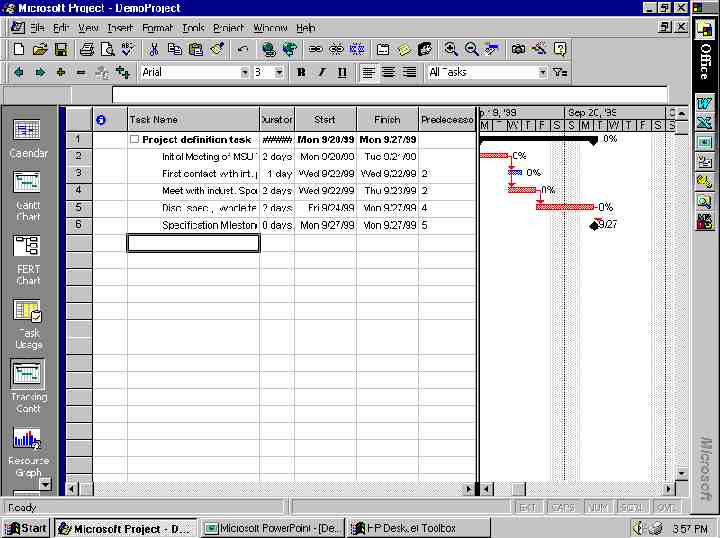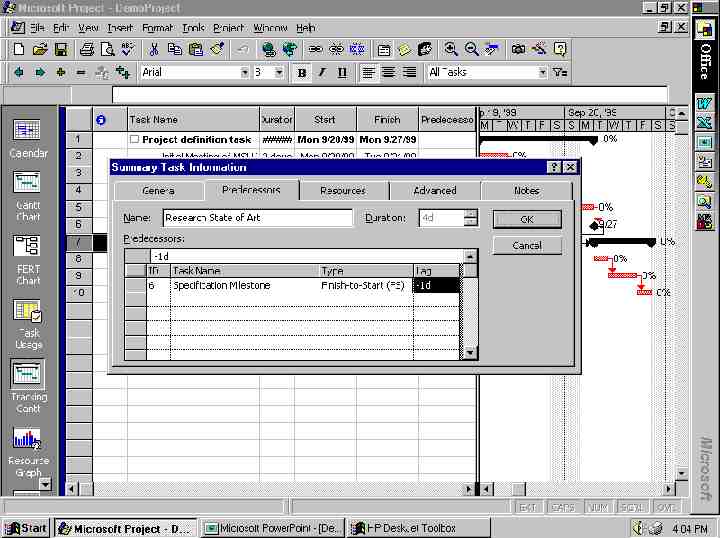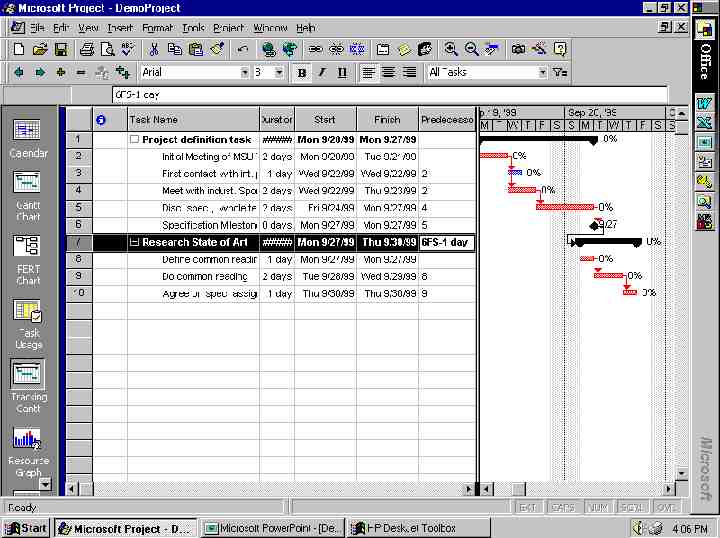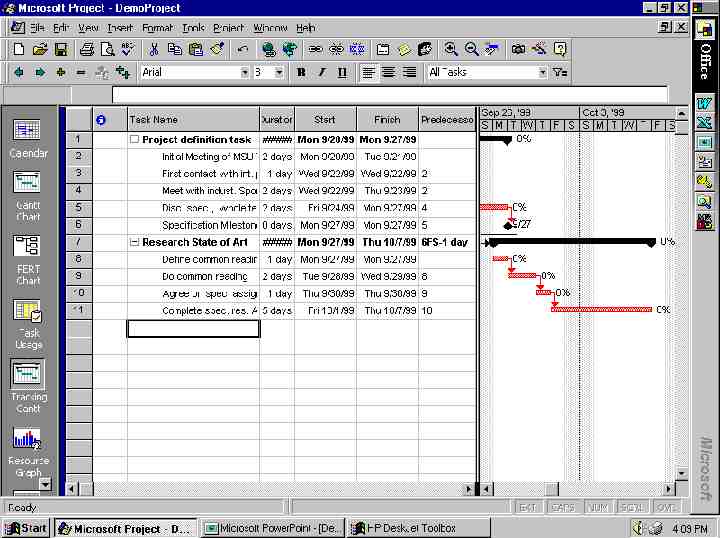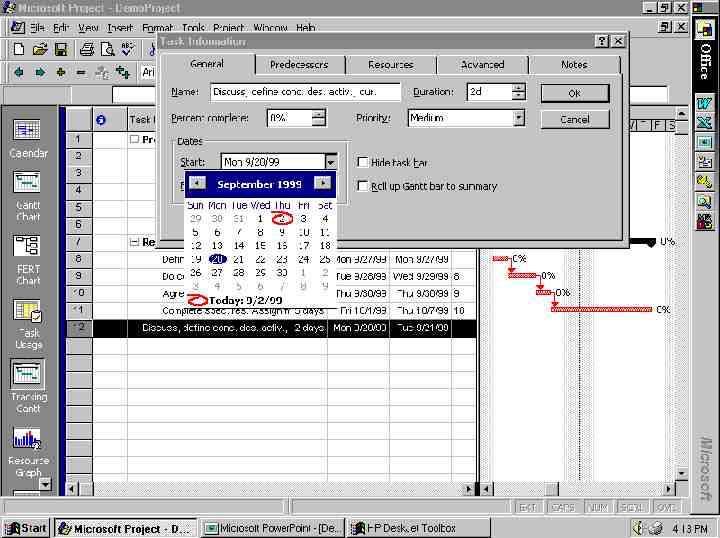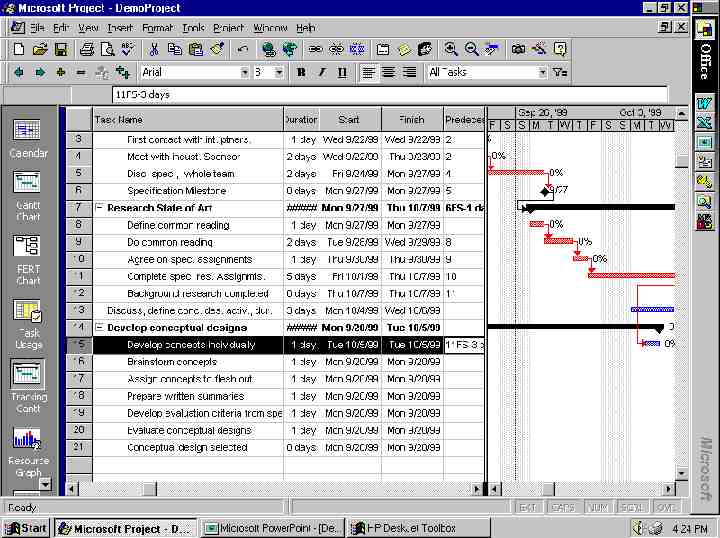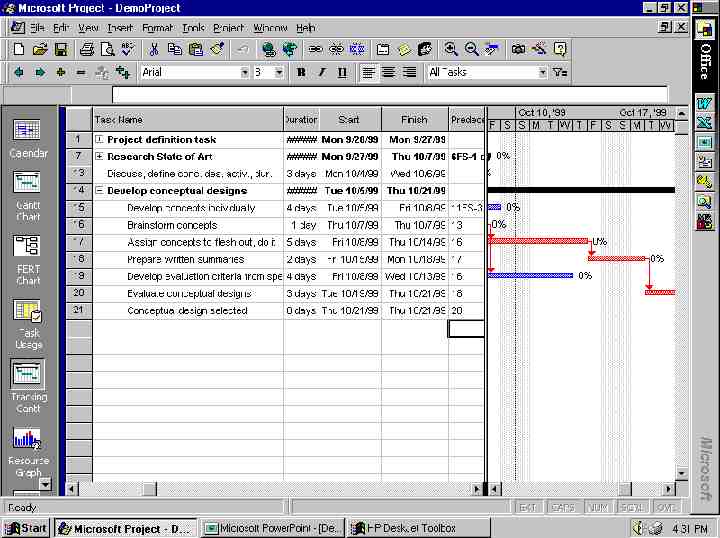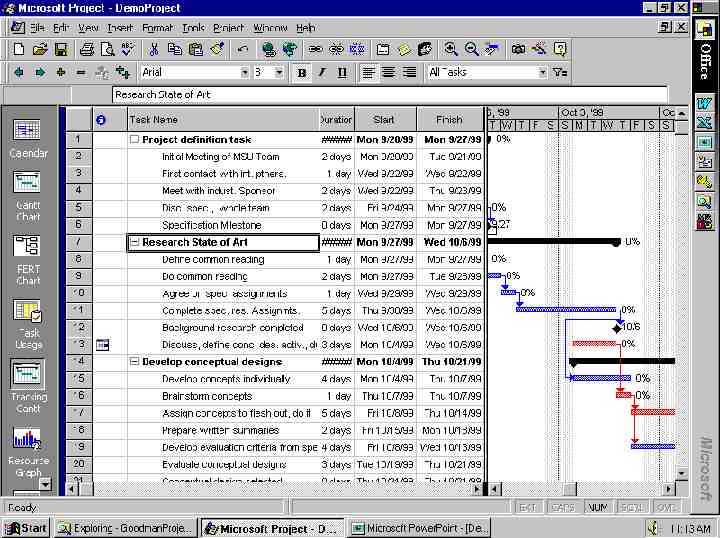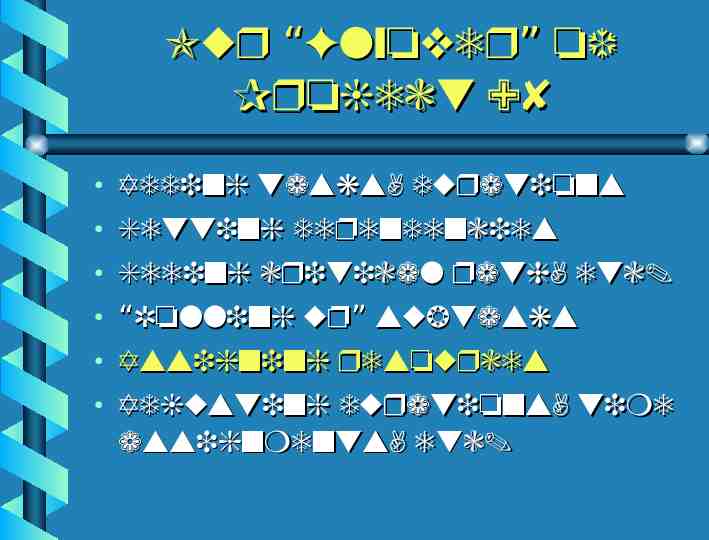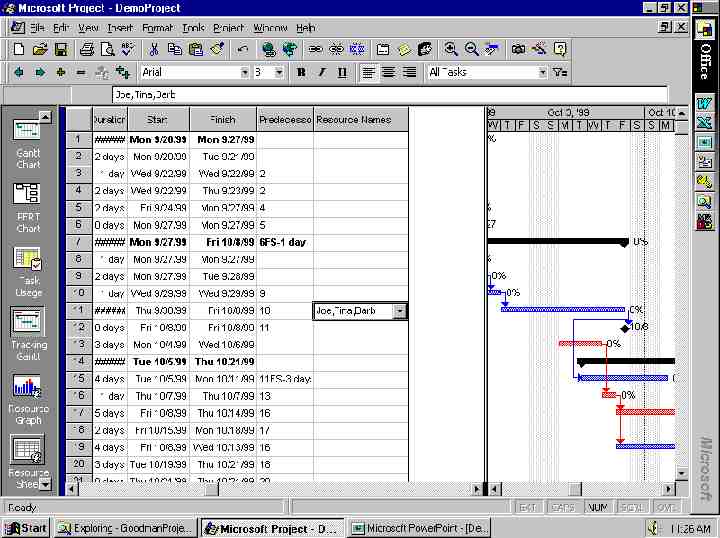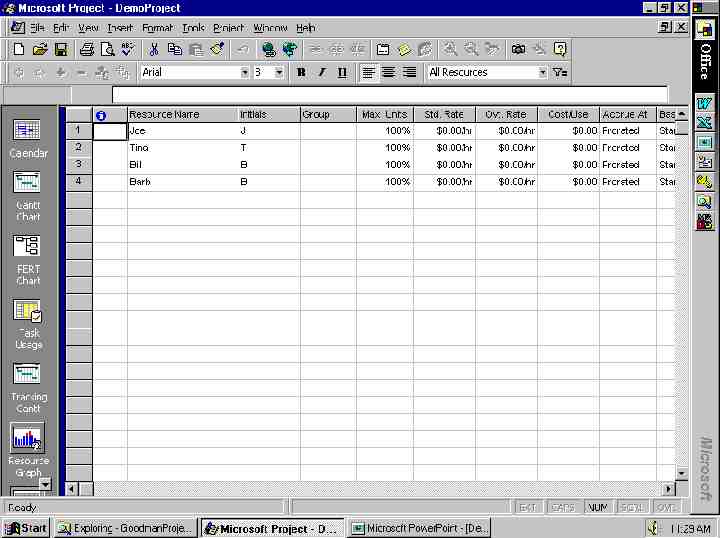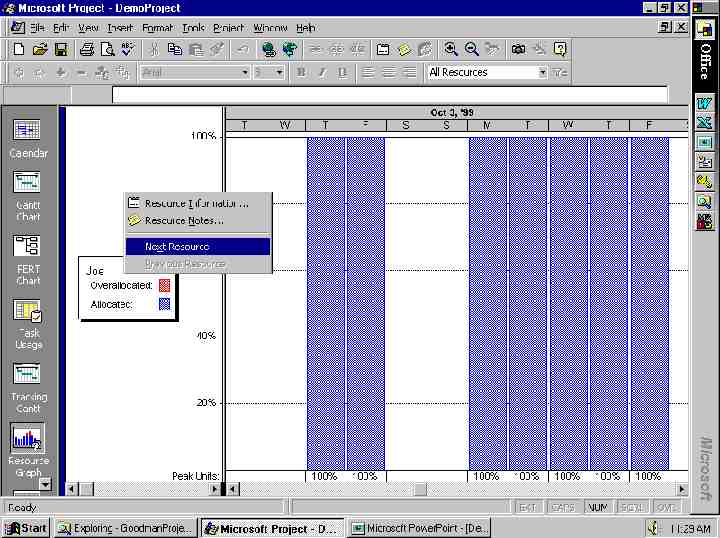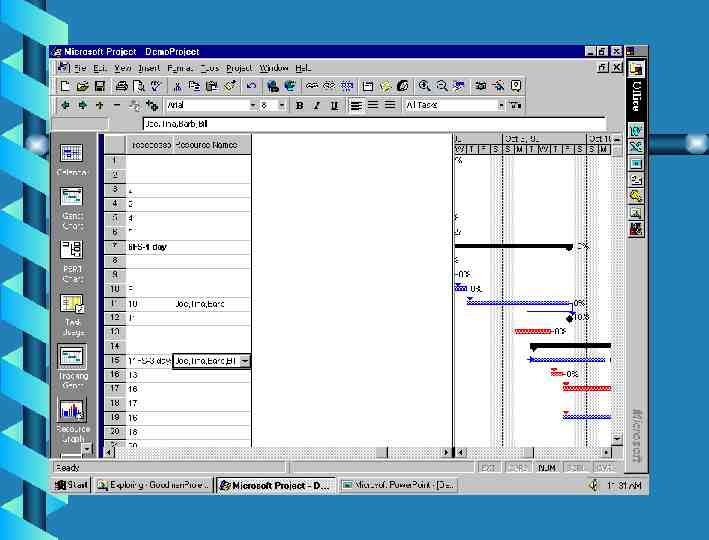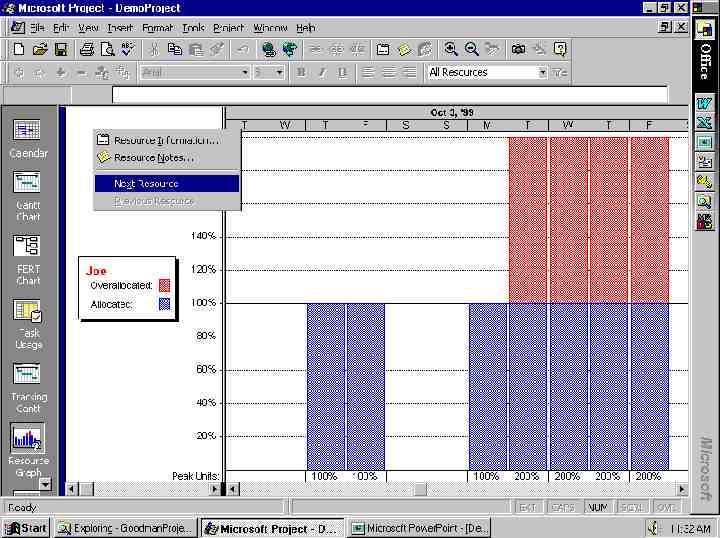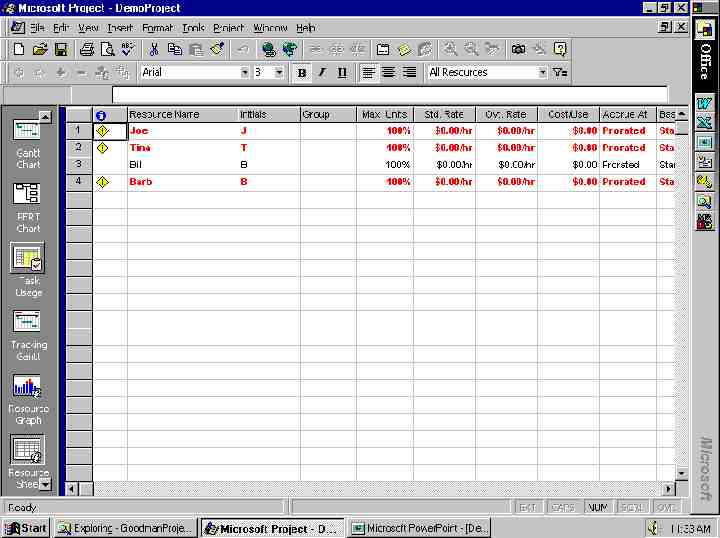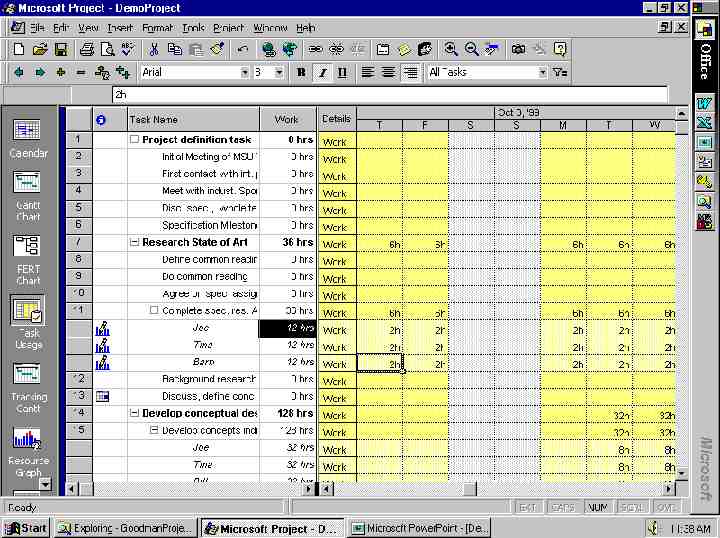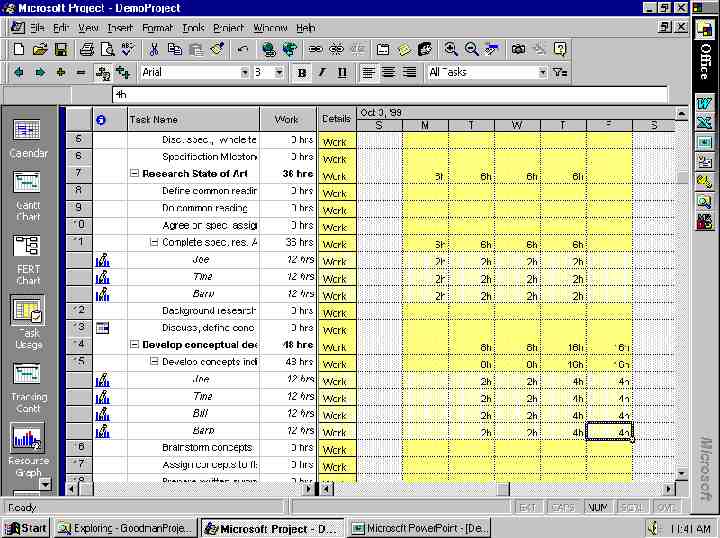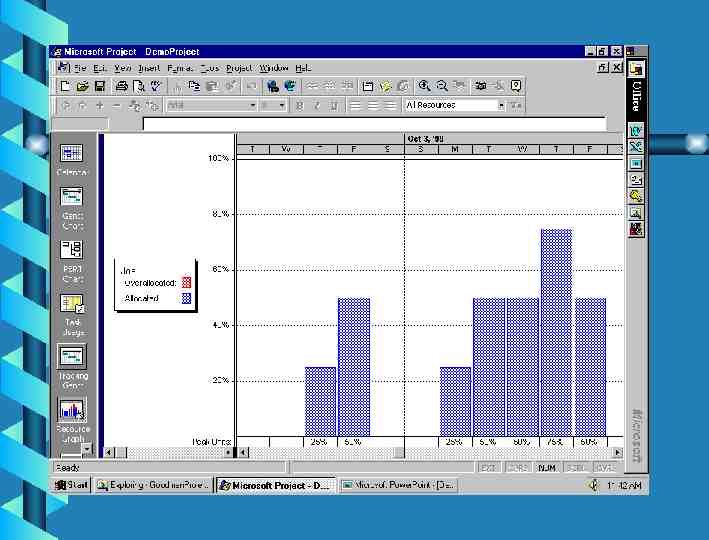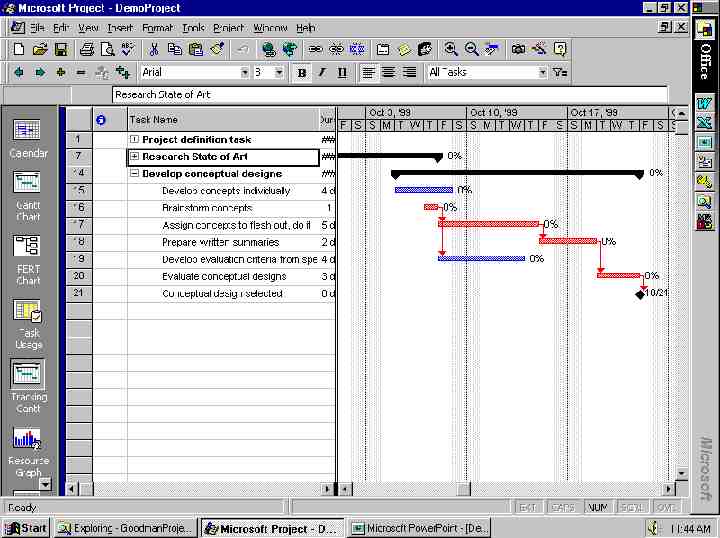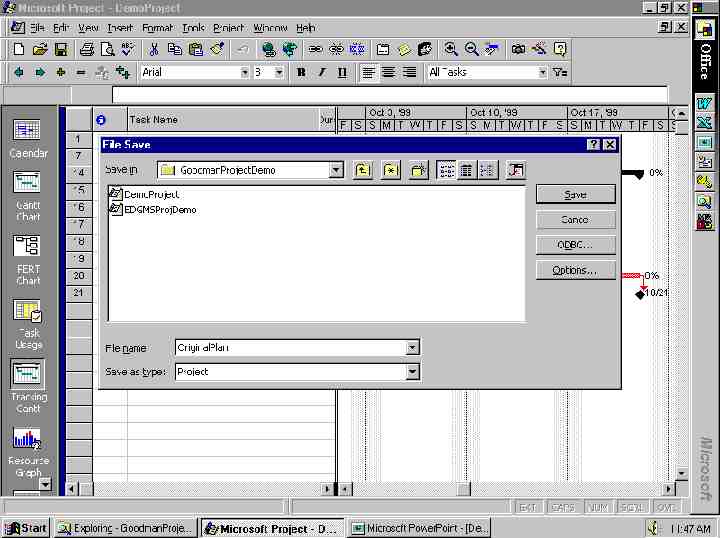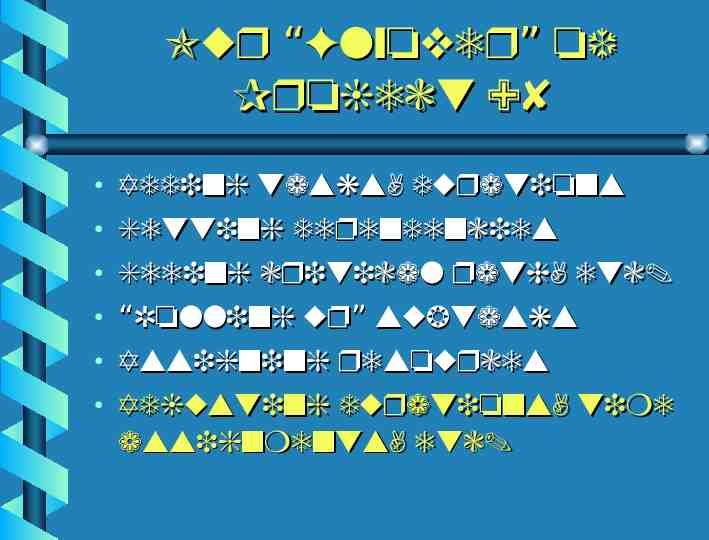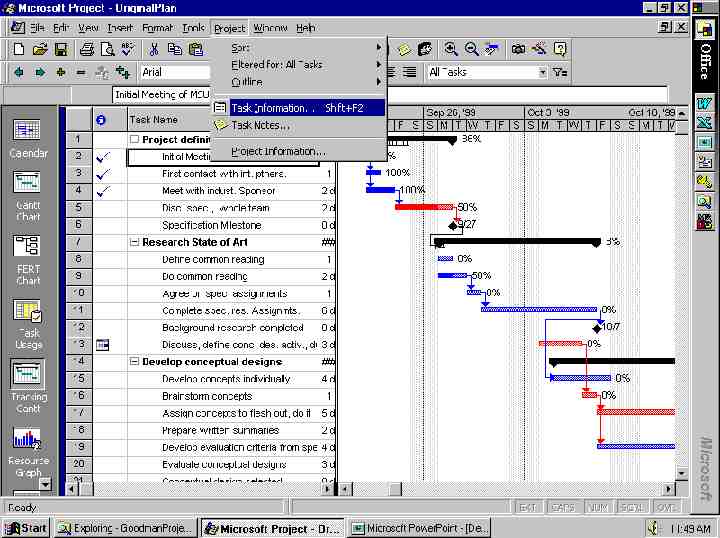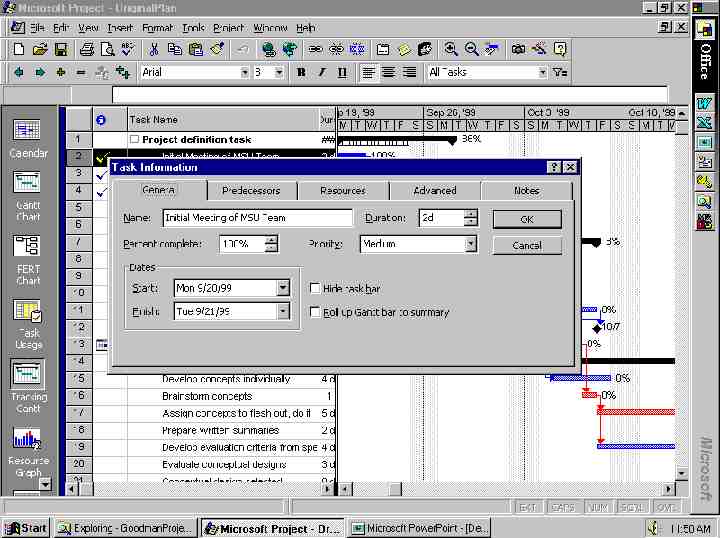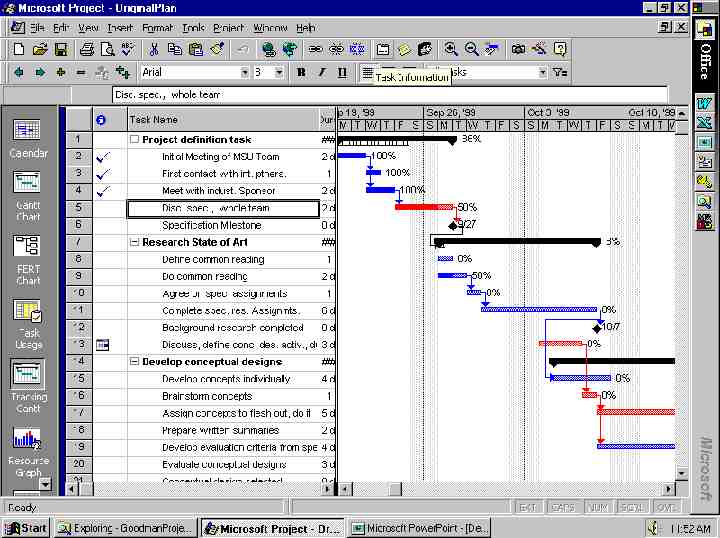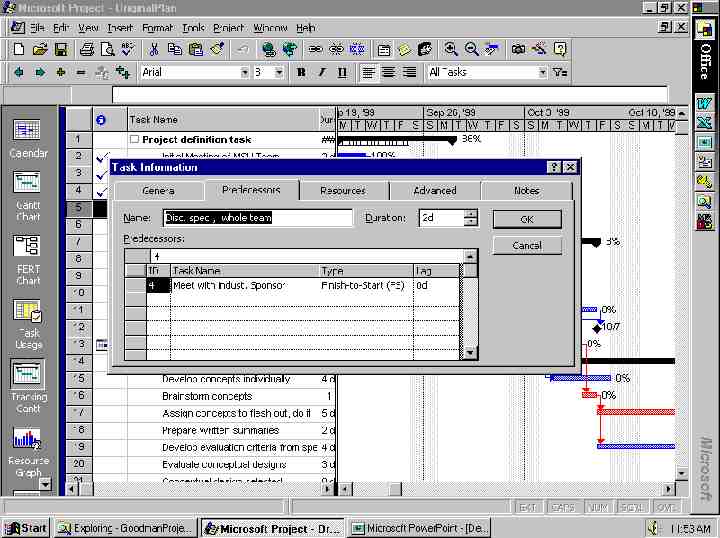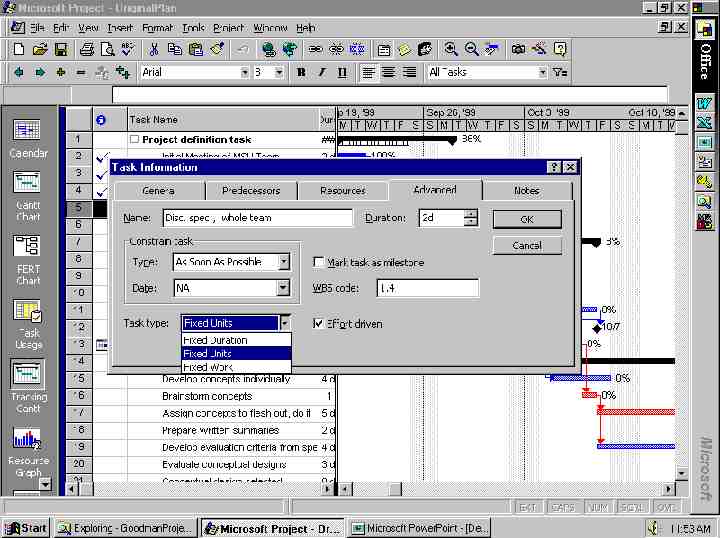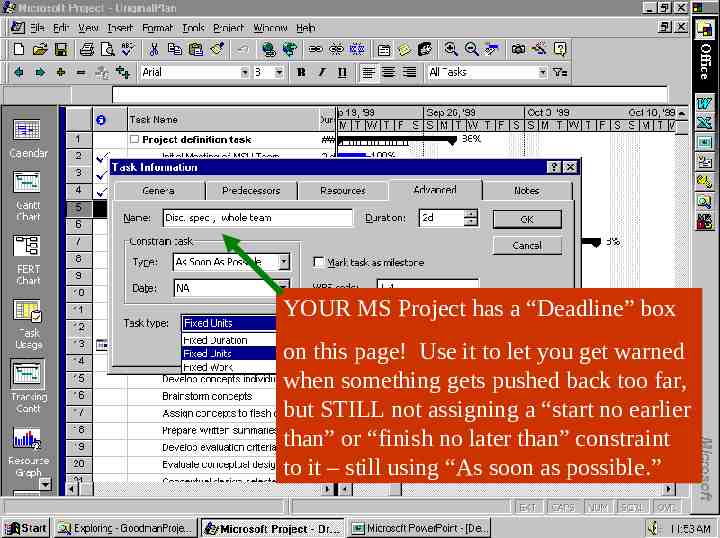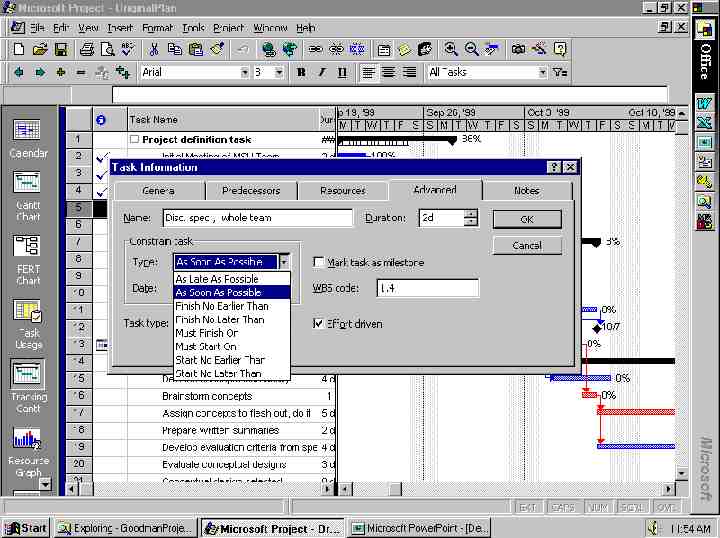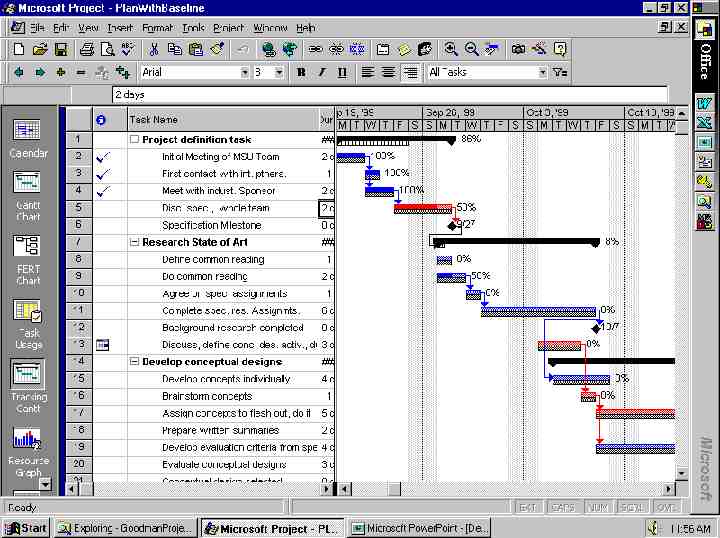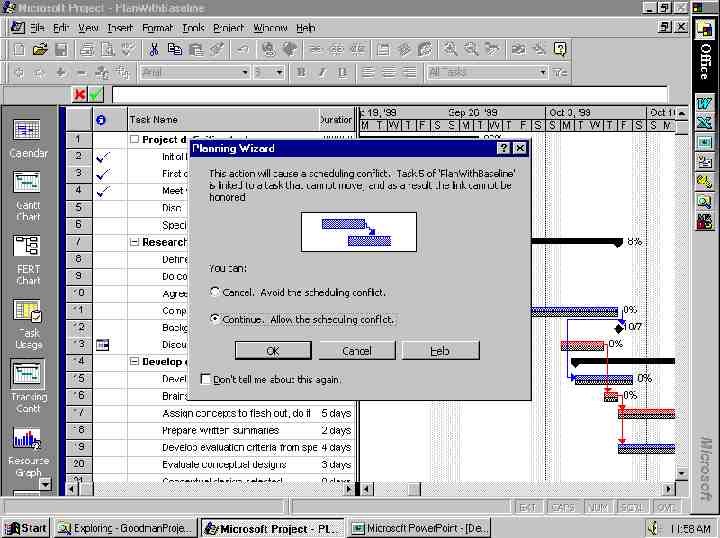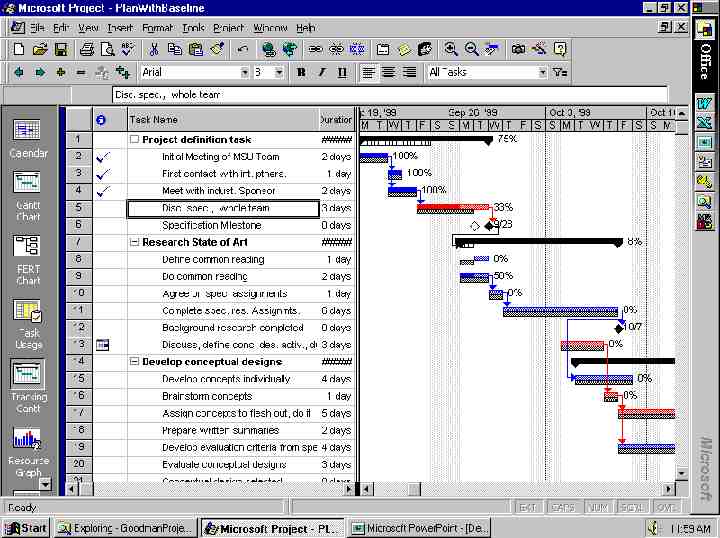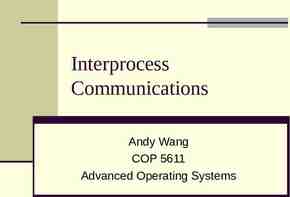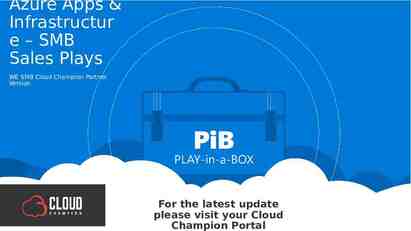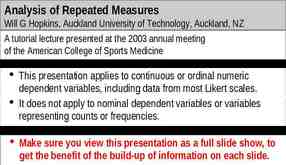Introduction to Project Management ECE 480 Erik Goodman
61 Slides951.00 KB

Introduction to Project Management ECE 480 Erik Goodman

What is Project Management? a method for organizing tasks a structured framework to help a group work productively tools to aid in task sequencing, dependency analysis, resource allocation, scheduling, etc. tools to track progress relative to plan

Why Need Project Management? Complex project needs coordination of: Multiple people Multiple resources (labs, equipment, etc.) Multiple tasks – some must precede others Multiple decision points – approvals Phased expenditure of funds Matching of people/resources to tasks

Task Dependencies and the Critical Path Sometimes task B cannot be started before task A is completed Other types of constraints – calendar, lags, etc. Critical path – any slippage slips whole project Helpful to know what tasks are on the critical path Useful to try to shorten the critical path

Suggested Steps in Project Management Generate a formal definition of the project, with goals, constraints, assumptions Identify project start/end dates, any mandatory milestones, including reports, signoffs, deliverables, etc. List constraints – money, equipment availability, holidays, etc. Identify tasks to be accomplished – high level (i.e., by categories), then details within each, using brainstorming method – green light

Suggested Steps, cont. Refine detailed task list, dropping/ combining, adding things omitted Then, for each task in list: Estimate time (person hours, calendar period) Identify dependencies among tasks Identify resources (people, money, parts, etc.)

Suggested Steps, cont. Organize task groups roughly by starting date List dependencies that should or MUST hold Use MS Project to make a GANTT chart First capture tasks and task groups, milestones Identify critical path, see if it can be shortened (get more “slack”) Assign person-hours and specific team member(s) to each task – identify “task leads”

Suggested Steps, cont. As project progresses: Monitor, record progress on all tasks, at least weekly – use “Tracking Gantt Chart” Pay particular attention to those on critical path Revise plan as needed to take into account changes, adapt to meet milestones

Project Management Using Microsoft Project Allows many different ways of entering and observing information includes many features to help identify problems with a plan regular use can help a group refine plans to make meeting targets more realistic

Our “Flyover” of Project 98 Adding tasks, durations Setting dependencies Seeing critical path, etc. “Rolling up” subtasks Assigning resources Adjusting durations, time assignments, etc.

Our “Flyover” of Project 98 Adding tasks, durations Setting dependencies Seeing critical path, etc. “Rolling up” subtasks Assigning resources Adjusting durations, time assignments, etc.

Our “Flyover” of Project 98 Adding tasks, durations Setting dependencies Seeing critical path, etc. “Rolling up” subtasks Assigning resources Adjusting durations, time assignments, etc.

WATCH YOUR DEPENDENCY CHOICES!!! If you choose something other than the “default” finish/start constraints, you will probably LOSE your ability to track the critical path So AVOID “finish by” or “start by” with particular calendar dates, or other types of constraints. Break tasks apart as needed, in order to make finish/start constraints realistic!

Our “Flyover” of Project 98 Adding tasks, durations Setting dependencies Seeing critical path, etc. “Rolling up” subtasks Assigning resources Adjusting durations, time assignments, etc.

Our “Flyover” of Project 98 Adding tasks, durations Setting dependencies Seeing critical path, etc. “Rolling up” subtasks Assigning resources Adjusting durations, time assignments, etc.

Our “Flyover” of Project 98 Adding tasks, durations Setting dependencies Seeing critical path, etc. “Rolling up” subtasks Assigning resources Adjusting durations, time assignments, etc.

YOUR MS Project has a “Deadline” box on this page! Use it to let you get warned when something gets pushed back too far, but STILL not assigning a “start no earlier than” or “finish no later than” constraint to it – still using “As soon as possible.”

Management of YOUR Project With your team members Create a plan for the entire project Set milestones for tracking progress Provide more detail for near-term tasks Use with your facilitator to report progress and revise/add detail to plan Assign specific tasks to team members Revise plan and activities as required to achieve objectives









